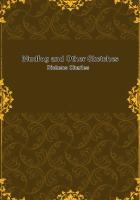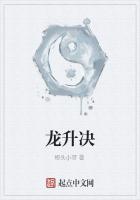It now remains for me to complete my record by a few facts and observations relating to the illustrious victims who a short time survived the Princesse de Lamballe. I shall add to this painful narrative some details which have been mentioned to me concerning their remorseless persecutors, who were not long left unpursued by just and awful retribution. Having done this, I shall dismiss the subject.
The execrable and sacrilegious modern French Pharisees, who butchered, on the 1st, 2nd, and 3rd of September, 1792, all the prisoners at Paris, by these massacres only gave the signal for the more diabolical machinations which led to the destruction of the still more sacred victims of the 21st of January, and the 16th of October, 1793, and the myriads who followed.
The King himself never had a doubt with regard to his ultimate fate.
His only wish was to make it the means of emancipation for the Queen and Royal Family. It was his intention to appeal to the National Assembly upon the subject, after his trial. Such also was the particular wish of his saint-like sister, the Princesse Elizabeth, who imagined that an appeal under such circumstances could not be resisted. But the Queen strongly opposed the measure; and His Majesty said he should be loath, in the last moments of his painful existence, in anything to thwart one whom he loved so tenderly.
He had long accustomed himself, when he spoke of the Queen and royal infants, in deference to the temper of the times, only to say, "my wife and children." They, as he told Clery, formed a tie, and the only one remaining, which still bound him to earth. Their last embraces, he said, went so to his aching heart, that he could even yet feel their little hands clinging about him, and see their streaming eyes, and hear their agonized and broken voices. The day previous to the fatal catastrophe, when permitted for the last time to see his family, the Princesse Elizabeth whispered him, not for herself, but for the Queen and his helpless innocents, to remember his intentions. He said he should not feel himself happy if, in his last hour, he did not give them a proof of his paternal affection, in obtaining an assurance that the sacrifice of his life should be the guarantee of theirs. So intent was his mind upon this purpose, said Clery to me, that when his assassins came to take him to the slaughtering-place, he said, "I hope my death will appease the nation, and that my innocent family, who have suffered on my account, will now be released."The ruffians answered, "The nation, always magnanimous, only seeks to punish the guilty. You may be assured your family will be respected."Events have proved how well they kept their word.
It was to fulfil the intention of recommending his family to the people with his dying breath that he commenced his address upon the scaffold, when Santerre ordered the drums to drown his last accents, and the axe to fall!
The Princesse Elizabeth, and perhaps others of the royal prisoners, hoped he would have been reprieved, till Herbert, that real 'Pere du chene', with a smile upon his countenance, came triumphantly to announce to the disconsolate family that Louis was no more!
Perhaps there never was a King more misrepresented and less understood, especially by the immediate age in which he lived, than Louis XVI. He was the victim of natural timidity, increased by the horror of bloodshed, which the exigencies of the times rendered indispensable to his safety.
He appeared weak in intellect, when he was only so from circumstances.
An overwrought anxiety to be just made him hesitate about the mode of overcoming the abuses, until its procrastination had destroyed the object of his wishes. He had courage sufficient, as well as decision, where others were not menaced and the danger was confined to himself; but, where his family or his people were involved, he was utterly unfit to give direction. The want of self-sufficiency in his own faculties have been his, and his throne's, ruin. He consulted those who caused him to swerve from the path his own better reason had dictated, and, in seeking the best course, he often chose the worst.
The same fatal timidity which pervaded his character extended to his manners. From being merely awkward, he at last became uncouth; but from the natural goodness of his heart, the nearest to him soon lost sight of his ungentleness from the rectitude of his intentions, and, to parody the poet, saw his deportment in his feelings.
Previous to the Revolution, Louis XVI. was generally considered gentle and affable, though never polished. But the numberless outrages suffered by his Queen, his family, his friends, and himself, especially towards the close of his career, soured him to an air of rudeness, utterly foreign to his nature and to his intention.
It must not be forgotten that he lived in a time of unprecedented difficulty. He was a lamb governing tigers. So far as his own personal bearing is concerned, who is there among his predecessors, that, replaced upon the throne, would have resisted the vicissitudes brought about by internal discord, rebellion, and riot, like himself? What said he when one of the heterogeneous, plebeian, revolutionary assemblies not only insulted him, but added to the insult a laugh? "If you think you can govern better, I am ready to resign," was the mild but firm reply of Louis.
How glorious would have been the triumph for the most civilized nation in the centre of Europe had the insulter taken him at his word. When the experimentalists did attempt to govern, we all know, and have too severely felt, the consequences. Yet this unfortunate monarch has been represented to the world as imbecile, and taxed with wanting character, firmness, and fortitude, because he has been vanquished! The despot-conqueror has been vanquished since!














